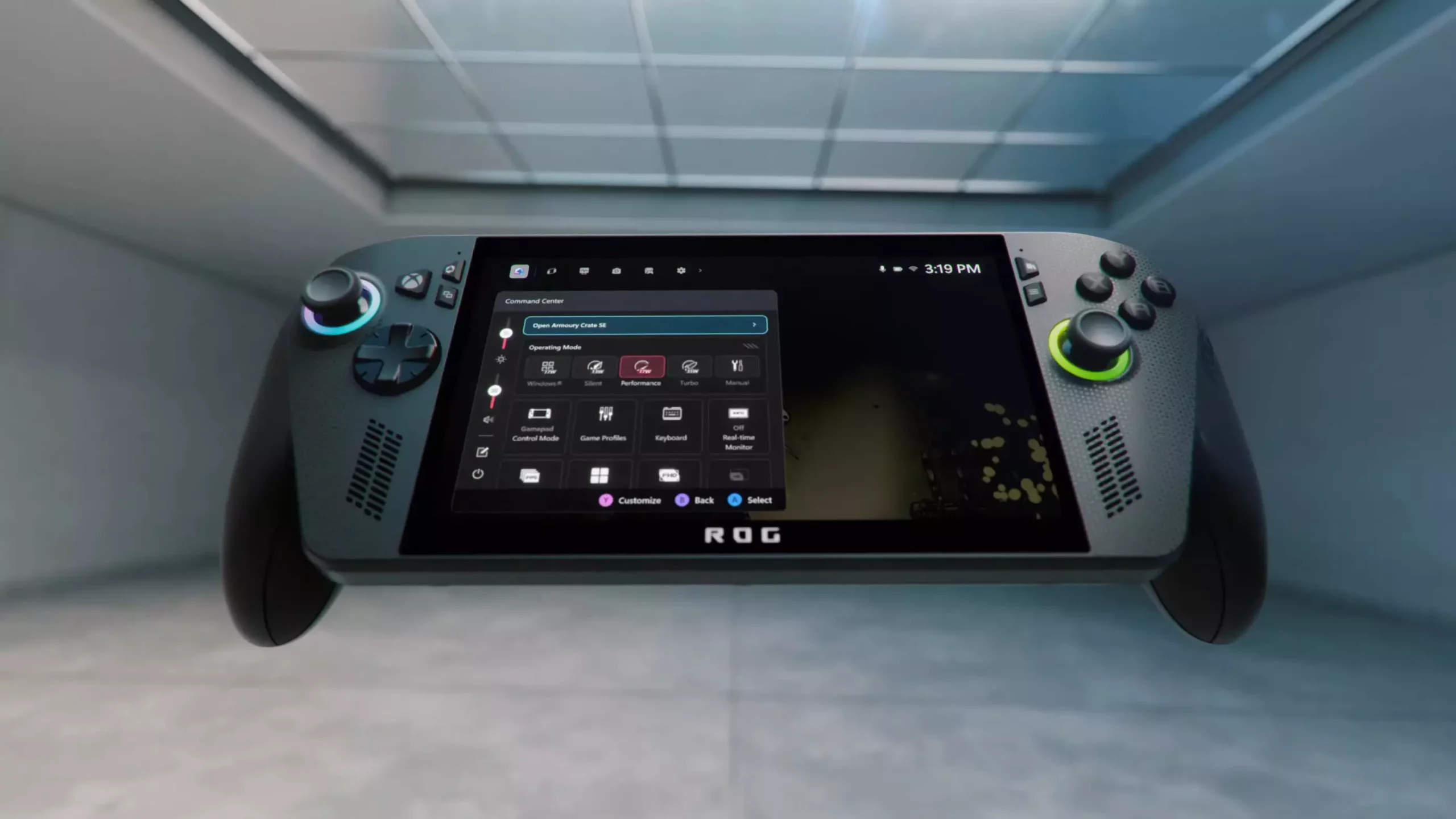Recent reports indicate a seismic shift in the future of Microsoft’s Xbox, suggesting that its much-anticipated handheld console might be nothing more than a mirage. Multiple sources, including an article from The Verge, have described this new device as being “essentially canceled.” This revelation casts a long shadow of uncertainty over a product that many believed was on the horizon. If the very existence of the handheld is now in question, it begs a broader inquiry: is Microsoft reimagining its entire approach to gaming?
While they initially caught gamer attention with their announcement of the Asus ROG Xbox Ally and ROG Xbox Ally X, it’s critical to note that these handhelds do not bear the classic Xbox brand in the realm of traditional consoles. Instead, they are fundamentally re-engineered PC devices, powered by existing technology and a customized version of Windows. This pivotal point brings us to a significant trend that could redefine the gaming landscape: Microsoft’s move towards a partnership-driven hardware model.
Shifting Hardware Paradigms
The prevailing narrative suggests that Microsoft might be retreating from manufacturing its hardware entirely. Instead, the tech giant could be inclined towards collaborating with established brands, like Asus, for the upcoming gaming hardware. This speculation isn’t mere conjecture; it stems from a strategic desire to streamline production and refocus efforts on software. As the reports imply, Microsoft is pivoting towards a future where they retain and grow their Game Pass subscribers, rather than investing heavily in traditional console development.
At first glance, this plan could appear risky. After all, gaming has long been an industry reliant on powerhouse consoles. However, adopting a collaborative model allows Microsoft to diversify its offerings, providing gamers with a spectrum of Xbox-branded experiences at varying price points and specifications. Such a strategy wouldn’t just expand the Xbox user base but could also challenge the existing competitors by offering a more accessible range of gaming options.
The Future of Xbox: A Software-Centric Ecosystem
As Microsoft’s ambitions unfold, the significance of a stripped-down version of Windows optimized for gaming cannot be understated. Analysts believe this tailored OS serves a greater purpose than just handheld gaming. It seems like a precursor for a broader ecosystem where software and Xbox branding converge seamlessly across multiple hardware platforms. The implications are profound: devices equipped with this customized software could potentially emulate or stream classic Xbox titles, allowing users to experience beloved games on a variety of third-party hardware.
The vision for this future was made evident at the latest Xbox Games Showcase, where Microsoft rebranded much of its messaging to include ‘Xbox PC,’ positioning itself against formidable competitors like Steam. This strategy suggests a deliberate move towards a different gaming environment—one defined not by traditional console walls but by fluidity across devices. If successfully implemented, this could redefine user experience by emphasizing software as the primary driver of engagement.
The Potential Backlash and Consumer Sentiment
Nevertheless, this new approach does not come without its challenges. The widespread adoption of a partner-centric model may alienate long-time Xbox fans who have grown accustomed to the idea of a Microsoft-built console. The loyalty some players have for dedicated hardware might clash with this new paradigm of flexibility and collaboration, potentially yielding a mixed bag of consumer sentiment. Will the gaming community embrace a system where their gaming experience is mediated through various hardware vendors, or will they long for a singular, cohesive Xbox console experience?
Furthermore, there lies an apprehension about quality control. While partnerships allow for diversity, they also run the risk of variances in hardware performance and user experience across different devices. If inconsistent quality crops up, it may taint the Xbox reputation, which can have long-term ramifications.
As Microsoft navigates this brave new world of gaming, the future of Xbox stands at a crossroads. Adapting to a software-driven model, while partnering with third-party manufacturers, could herald exciting times ahead for gamers, offering them varied options and potentially disruptive innovations. Yet, the success of this evolution hinges on how well Microsoft can manage consumer expectations and maintain the integrity of the Xbox brand in an increasingly competitive marketplace.

